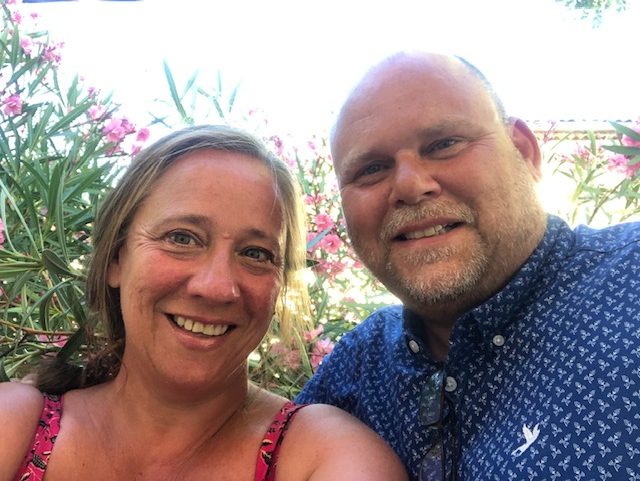
A couple from Pendleton have successfully identified over 500 Pendleton soldiers from World War I.
Barry and Theresa Emberton embarked on the project after Barry’s Great Uncle Harry was remembered on St. Thomas Church’s Memorial Board. Barry said: “I knew a lot about my Uncle, but we didn’t know a lot about the others. Within about two minutes, he asked us to do a bit of research.”
Theresa followed: “It’s strange, because you think you know somebody, because you’ve heard all these stories, but in actual fact, he’s dead a very long time.
After the Vicar explained how very few of the Pendleton 500 had ever been identified, the couple decided to take retire and research into the family history of each conscripted male from 1914-1918.
A former Radiation Physics researcher at Christie Hospital, Theresa took to ancestry websites and scoured countless parish, probate and nationally archived records to identify each name. She continued: “By the time I’d researched all these, the some of the younger ones, it was really tragic. And I began to think ‘I’ve got responsibility for my boys.’
“Those soldiers are a moment frozen in time. We wanted to remember those who died and give them thanks.
Amongst the findings were the Stevenson Brothers from Pendleton, who all died at The Battle of the Somme. She said: “We waded through newspapers at Salford Local History Library and found a letter which had been sent in from Mrs. Stevenson asking ‘Does anyone know what happened?'” Because people weren’t notified unless there was a body found, then they were presumed missing. Although a letter was found explaining a son had been buried, its never been found.”
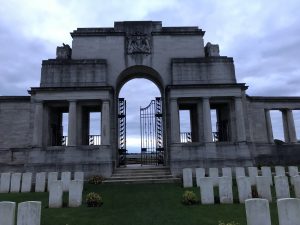
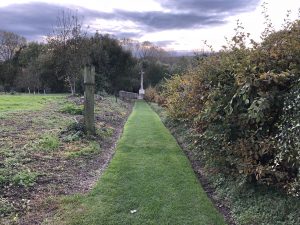
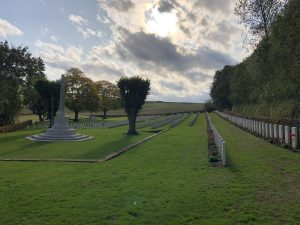
Touched by the findings, Theresa and Barry took a week-long trip to France to pay their respects. Working from the South of France, up through the Somme, the couple visited over 130 graves in seven days. Barry said: “You can get to some graveyards with thousands, and some with only 50 or 60 people in it.”
Theresa continued: “There’s a wonderful atmosphere there, it’s really dignified.
“We took photographs of each soldier. We stood by them, and we spent a moment Barry’s tapped them all on the top of the headstone, saying “Good lad, good lad. It was emotionally exhausting.”
“When you’re there you think about the Mothers, did she ever get to see where her son died? Probably not because if you think about some of these big families in, in Pendleton, living in their two-up-two-downs. Where do they find the money to go on these trips when they’ve got children still at home to look after? Some of them, I do wonder, whether we were the very first people to go deliberately to see them from Pendleton.”
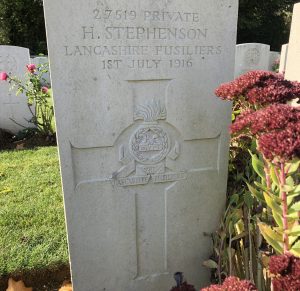
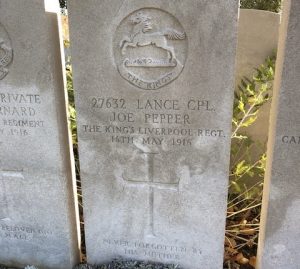
Whilst Barry and Theresa have struggled to reconnect the deceased with living relatives, Theresa hopes the research will contribute towards community relations. She continued: “We don’t know the impact this research is going to make, because we’re struggling to try and reach people… but people will see the pride in their own past.
“St. Thomas’ Parish is representative of the real working class of Salford that drove that industrial revolution.
“There was so much social pride, pride in who they were proud of the fact that they lived in Pendleton. The mothers would have grieved together the fathers probably would have got drunk together and they that sort of support network epitomises the area. I think that’s missing now.”
Barry has taken to social media, sharing daily anniversary posts of the deceased on the friends of St. Thomas Facebook group. Theresa said: “We post it, first of all out of respect. And we wanted for people to think, ‘Oh, and another one, and another one – just in our Parish’. Anyone who makes contact with us about these men, we will always follow it up.”
The couple have also researched the history into St. Thomas’ Parish, with the hope of a documented account being released later this year.
To find out more information on the Pendleton 500, visit the Friends of St. Thomas Facebook page.














One Comment